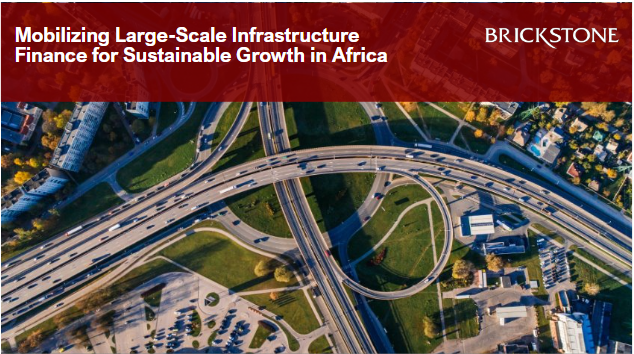Mobilizing Large-Scale Infrastructure Finance for Sustainable Growth in Africa
Mobilizing Large-Scale Infrastructure Finance for Sustainable Growth in Africa
Mobilizing Large-Scale Infrastructure Finance for Sustainable Growth in Africa
None is as serious as the challenge of infrastructure finance in developing countries. Although infrastructure can be considered very important for economic growth and poverty alleviation, the gap between the infrastructure needs of this financing has been continuously growing. Now more than ever, it is most pressing that large-scale finance mobilization for key infrastructure projects take place if truly sustainable development is at the forefront of issues.
A good infrastructure is the backbone of any economy, facilitating the movement of goods, services, and people. Most African nations, however, are faced with deficient infrastructure that constrains them from integrating fully into the global economy. The causes of infrastructural deficiency are numerous but have always remained fixed on one major constraint: access to adequate and affordable financing. The risks for African countries are usually greater than those of the industrialized world and include political instability, currency fluctuations, and limited financial markets, all making private investment unattractive. But more importantly, public resources are frequently overstretched, leaving very little room for substantial funding for infrastructure.
One key answer to this financing gap must be harnessing PPPs. Private-public partnerships to provide a very useful framework that joins the strengths of both the public and private sectors in a single entity: the former provides the regulatory umbrella and long-term stability, while the latter contributes efficiency, innovation, and capital. However, for PPPs to scale, several challenges must be addressed.
First and foremost, private investors must be attracted by a sound regulatory environment. A transparent and predictable legal framework is essential in African countries to reduce the perceived risk associated with infrastructure projects, starting from contract enforcement, and protection of intellectual property, to guarantees against expropriation.
Second, in most African countries, financial markets are not developed, and therefore the supply of long-term capital is limited. One of the key tasks that governments and international organizations need to undertake is deepening these markets through the development of local bond markets and credit enhancements. This will not only attract domestic investors but also lower the cost of borrowing for infrastructure projects.
Third, most of the infrastructure projects in African nations lack technical and managerial classes with the necessary expertise to help in successful executions. In this aspect, capacity building between the government and institutional levels must be done concerning project management, financial modelling, and risk assessment. International organizations or development banks can contribute much to providing technical assistance for the same.
Closer coordination among the stakeholders is also necessary. Normally, infrastructure projects involve many players—the government agencies, the private companies, and the local communities. Good communication and teamwork between these stakeholders are critical for success. While designing the infrastructure projects, the governments should work to make sure that they are in tandem with other priorities of development like poverty alleviation and environmental protection so that many people will benefit from such projects.
The scaling up of infrastructure finance for African nations demands a multifaceted solution to sort out gross challenges to risk, market development, technical expertise, and coordination among stakeholders. An enabling environment will let any country in development attract the capital needed to build the base infrastructure that will drive future growth. The stakes are high, but with the right approaches in place, the possible rewards will be even higher.
This article by Brickstone reviews the World Bank Publication on Unlocking Infrastructure Finance at Scale for Developing Countries.
Read the complete publication here.





